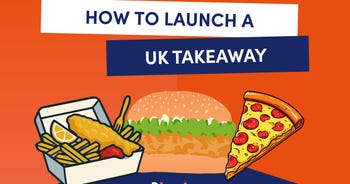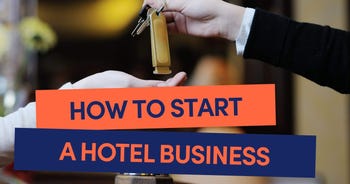How to prepare and conduct an interview to find the winning candidate for your business
An interview can be a nerve-wracking experience for those on both sides of the table – hopeful candidates are desperate to impress, while the interviewer wants to make sure they get the right candidate for the job.
Preparation is key. As an interviewee, you need to be prepared for any questions the interviewer might put your way. Remember, you’ve got this far so they’re not trying to catch you out.
As the interviewer, you need to prepare a question set that will put you in no doubt about who the best candidates are. Let’s take a close look at how you can best do this and help make sure you find the right person for the job, every time.
What is a job interview?
A job interview is a conversation between a job applicant and an employer to help both work out whether they are a good fit for the job that’s been advertised.
Why is a job interview important?
A job interview is important for both employers and potential employees as it’s an opportunity for both to work out their suitability for a role.
On the one hand, it’s a formal meeting during which an applicant is asked questions to help the interviewer work out whether they’re suitable for a particular role. An interview also gives candidates the chance to ask questions to help them work out whether the role and business is a good fit for them — as this is just as important.
To get the best out of any interview, it’s important that all involved treat it as a two-way conversation.
How to prepare for the interview
As an interviewer, it’s important to make sure you fully prepare for each interview. This includes having a complete question set at the ready, with some tweaks made based on the CV of each applicant to help get the best out of them.
Here are some steps to take when preparing for an interview.
Understand what you need
Whether you run a blue-chip business or a local chip shop, you need to know exactly what you need before you advertise a job vacancy. A well-written job description is a good place to start, as this can help filter out unsuitable candidates even before things get to the interview stage.
Having a clear idea of the exact role that needs filling can also help set the expectations of the candidate. If you hire a candidate and the job isn’t as advertised or not what they expected, you might soon need to go through the interview process all over again to find a replacement that is better suited to your business.
Identify the qualities you want in a candidate
Although important, it’s not all about experience and qualifications. You’ll also need to consider how each candidate will fit in at your workplace.
If possible, take a look at other employees to see what attributes really stand out or stood out during their interview process. You can then put together a checklist of exactly what is needed from the candidate alongside some qualities that it would be good for them to have. This can then be used to compare interviewees before making your final decision.
Read the candidates CV in detail
The interview process can be exhausting, so it helps to filter out as many candidates as possible before taking the time to hold any face-to-face meetings.
Taking the time to read in detail the CV of each candidate will instantly let you know whether they have the necessary skills and experience needed for the job. It can also give you an insight into their overall suitability if you consider the following:
- What do their out-of-work interests say about them?
- Is the CV well-presented?
- Are there any spelling mistakes?
Once you’ve decided which candidates you want to take to the interview stage, you can then familiarise yourself with their details in advance. This can help shape the questions you want to ask.
Write down specific questions you want to ask
As a bare minimum, you should take a copy of each candidate’s CV into the interview with you along with a list of general questions that will help you figure out who is most suitable for the role.
But to get the most out of the process – and find the best prospect – have a second set of questions for each candidate, based upon what was said on their CV. You should also be prepared to ask unscripted questions based upon the information they give during the interview but this will likely flow with the conversation.
Set aside enough time to conduct the interview
It’s hard to know how long an interview will last. While some candidates will be quickly in and out, you might find the conversation flows freely with others. It’s important to consider this before giving out interview times to candidates as you don’t want to miss out vital insights by cutting an interview short.
On the other hand, you don’t want to drag out the process by setting aside too much time, as this could leave you sitting around between interviews. It could help to conduct a mock interview with another member of staff (or a friend or family member if you have no other staff) to work out roughly how long each candidate should need. This can also help you brush up on your interview technique before the real thing.
How to conduct the interview
Follow the steps below to make the most of the time you have with each candidate.
Introduce yourself and the company
It might seem like a formality, but the introduction helps set the tone for the rest of the interview. Start by introducing yourself along with anyone else on the panel, and then tell them a little bit about the business.
Be sincere, courteous, and try to put the candidate at ease – if nerves get the better of them, you won’t get a true reflection of their skills and personality. And remember, it’s not just the candidate that needs to make a good first impression - they’ll be assessing you, your business and whether they think the role is a good fit for them.
Review the job description
With the introductions out of the way, give the candidate a quick running order for the interview before going back over the job description. Let the candidate know how the role fits into the business and its future plans, including whether it’s permanent, temporary or contractual. Make sure you give the candidate time to respond to what you’re saying and encourage them to ask questions about the job should they have any.
Ask general questions
When it’s time to start asking questions, help to ease candidates in with some questions about their background and why the job interests them. Make sure questions are open to avoid simple, one-word answers, but try to avoid anything too general - “Tell me a bit about yourself” might seem like a good ice-breaker but you might not gain any useful insight. Remember, you’re not trying to trip the candidate up or tie them in knots.
Refer back to the candidate’s positions
Checking over each candidate’s CV should have been part of your interview preparation. You should use the interview to build on any relevant information you already have about them and their work history. Look out for any strengths and weaknesses they may have shown in past roles, and ask about any gaps in education or employment. You should also find out why they left their last job or are looking to leave their current one.
Offer the candidate a chance to ask their own questions
Always give candidates the opportunity to ask you and your panel questions – as they'll be trying to figure out whether the role and company is a good fit for them. This will also give you an insight into how much preparation they’ve done for the interview and whether they’ve done any background reading on the business. And don’t be offended if they ask about salary – everyone wants to have an idea of how much they can earn before they agree to a job offer. In turn, you can also ask how much they’re currently on and how much they’re looking for.
Give an honest timeline of the recruitment process
Once all questions have been asked and answered, let the candidate know what the next steps are. Let them know if you’ve any more candidates to interview – without going into specifics – and give them an idea of when they can expect to hear whether they’ve been successful. You should also let them know if there will be another round of interviews or a task that they’ll have to complete.

What to do post-interview
Once you’ve interviewed everyone on your shortlist, follow the steps below to keep candidates informed and ensure you make the right decision.
Email the candidate expressing your thanks
When all candidates have been interviewed, email each one personally to thank them for showing an interest in the role. If you’ve decided a candidate isn’t right for the job, let them know at this stage. You should also let them know if there’s another role they’d be better suited to or if you plan to keep them in mind for any upcoming vacancies.
If you’re unsure about a candidate and need more time to think, explain that you’re still in the process of reviewing applications and will be in touch with a decision as soon as possible. If you plan to take them to the next stage or even offer them the job, it’s best to give them a call and let them know you’ll be in touch about the next steps.
Be aware of an unconscious bias
No matter how experienced you are at conducting interviews, unconscious bias can be a problem. This is when you form an opinion of a candidate based upon first impressions or anything else outside of their suitability for the job. This could be something as simple as the age of the candidate or as complex as feelings of affinity towards them.
Although it’s important to find a candidate that will complement other members of staff and fit in with the culture, you should look at each candidate as objectively as possible. Your recruitment strategy should primarily be based first upon a candidate’s suitability for the role before considering any other factors. If you want to check for any racial, religious, or sexual orientation biases, these implicit association tests from Harvard are worth trying out.
Don’t promise what you can’t deliver
It’s important to set realistic expectations after an interview – both in terms of when candidates can expect a decision as well as what they can expect if they land the job. If you’re not going to be able to decide for a number of weeks, let the candidates know as it’s unfair to string them along. If there are any downsides to the job – unsociable hours, no flexible working, etc. - let them know before ruling anyone out.
Slow down your decision making
It’s natural to make an early decision on one candidate but try to avoid sticking to these first impressions and look at each candidate objectively. Take the time to look back over their CV, think about how they presented themselves, how confident they answered questions, how good their task was and consult your notes and other panel members before deciding.
Give feedback to rejected candidates
Post-interview feedback lets unsuccessful candidates know what they did well and where they went wrong. It may not seem important to you, but the feedback you give could be invaluable to them the next time they go for an interview. Giving feedback can be difficult and sometimes uncomfortable, so try to be as tactful and as truthful as possible. A good tactic to employ is to start with some positive feedback, then go into the negatives, before finishing again on a positive note.
Things to consider
The main thing to consider before conducting an interview is that you want to get the best out of the candidate in the limited amount of time you have with them. Avoid being confrontational and try to put them at ease straight away – an interview is a very artificial situation, and a nervous candidate won’t do themselves justice.
Remain objective throughout the whole process and take your time before making a decision. If you take this on board and follow the steps above, you should have no problem finding the right person for whatever job you’re recruiting for.
And remember, you’ll need to adjust your business insurance as soon as you take on your first member of staff. Employers liability insurance is a legal requirement in the UK. Speak to the team at Bionic for more information.







